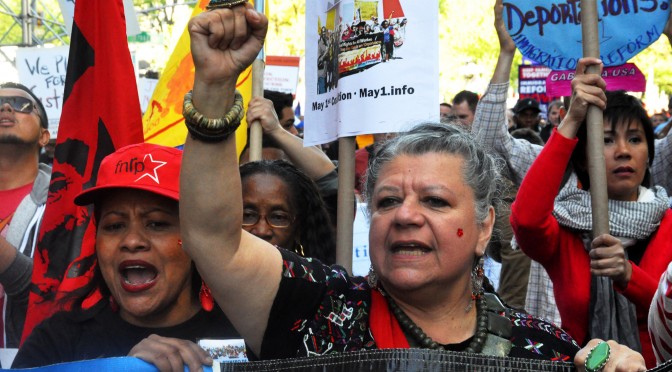Pacific Standard is working on a special project in which experts and activists weigh in on the future of work. In a recent entry (The Future of Work: The Forces Against Organized Labor, Oct 1, 2015), Murphy Prof. Ruth Milkman outlines the forces producing the decline in unionization in the United States. She writes:
Contrary to popular belief, de-unionization is not primarily due to globalization or new technology: Successful attacks on organized labor have affected many place-bound low-tech industries, like construction or hospitality, nearly as much as manufacturing. The primary driver of labor’s decline is the growing power of corporate employers who are fiercely determined to weaken unions where they already exist and to prevent their emergence elsewhere. That determination is reinforced by the ideology of market fundamentalism, for which both unionism itself and governmental protection of the right to organize are anathema.
…
Intransigent opposition to unionism has become standard business practice. In the private sector, an army of labor consultants (also known as union busters) systematically assists companies in squashing any budding organizing campaigns. Some of the standard anti-union tactics they recommend are perfectly legal, but many employers don’t take any chances: firing workers for union organizing—illegal under the 1935 National Labor Relations Act—is five times as common today as it was in the 1950s. It’s no coincidence that back then the share of private sector workers who were union members was five times the current level.
Until recently, systematic anti-union attacks were concentrated in the private sector. But thanks to the energetic efforts of the American Legislative Exchange Council, backed by the Koch brothers and other conservative interests, the public sector has moved to center stage in the war on unionism. ALEC drafted model legislation to limit or eliminate public-sector collective bargaining rights, various versions of which have become law in states that once were union strongholds.
Milkman ends by urging readers to support new alliances:
Faced with a more hostile political and economic environment than the nation has seen since the early 1930s, the labor movement has been building alliances with other progressive forces, from the immigrant rights movement to Occupy Wall Street, from the Black Lives Matter movement to environmentalism. And some unions are now experimenting with new modes of organizing, best exemplified by the Service Employees International Union-backed fast food workers Fight for 15 campaign that has been building momentum since 2012 and has helped spark several successful state and local efforts to raise the minimum wage to $15. Whether these initiatives can help start a larger union revival is far from clear, but it’s in the interest of anyone concerned about the future of democracy and surging inequality to support them.
To read the article in full, visit Pacific Standard.



